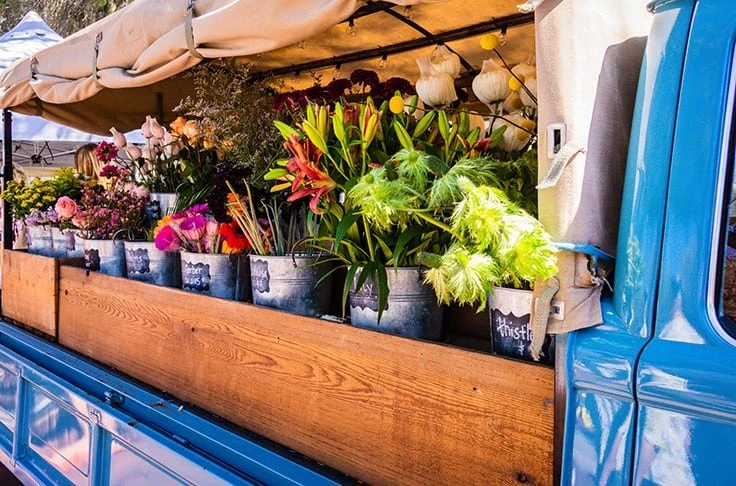
vermontalm I Adobe Stock
At Cultivate’21, attendees got the chance to hear from four successful plant pop-ups to learn tips, tricks and best practices. Read on for details on how they made sales, connected with customers and found new markets.
Winnie
Brian Wildeman, owner of Wilde Horticulture in Evansville, Indiana, bought a 1949 Chevrolet named Winnie, branded it with hand-lettering from a local artist and took it out on the town.
Early on, he realized they needed to protect the plants and merchandise better so they bought pop up tents, and canvas sides that pop up to help. Working the truck as a family with his two daughters, they’ve been bringing plants to locations all over the area. “The children are the best attraction to the truck,” he said.
Sprout
Jan Goodman, owner/president at Cityscapes in Boston started her own truck, Sprout, as an offshoot of her retail flower shop. Over the past few years, she has donated more than $30,000 to local charities thanks to the truck’s success. “It’s the best thing I’ve ever done in my life but it’s also been the most exhausting.”
She’s visited hospitals, condominiums, often accepting pre-orders online. At Sprout, their process is to stage the plants the day before, take them all down to travel, and then set up shop again once they reach their destination. The open shelving on the truck makes it impossible to travel with plants on display.
A big success for Sprout has been winter pop-ups with evergreens and wreaths outside the truck and houseplants for sale inside.
Plant Truck Chicago
Tony Abruscato of the Get Growing Foundation in Chicago developed a plant truck as part of the Chicago Flower and Garden Show after the show was shut down due to COVID. So they loaded up their 22-foot-long 1974 truck and took it to McCormick Place to see what would happen. “It’s like driving a big metal lunch box,” Abruscato joked.
From there, Plant Truck Chicago spread the joy of plants across Chicago. What Abruscato found was that 20% of people who bought plants from the truck had never even been to a garden center. Some were even afraid to go to one. And 60% said they had ‘no idea how to grow anything’ so the PTC staff tried to help and inspire visitors.
Unlike other pop-ups, PTC is funded by corporate donors so they don’t have to make money. Even the truck was donated.
City Grange Pop-ups
City Grange in Chicago started off with a bit of a different mission. Owner LaManda Joy said City Grange wanted to get to know the Beverly area of the city better, so they designed a holiday pop-up in a rented retail space. They met the neighbors asked their thoughts on a garden center in the area. In the same space, 6 weeks later, they did a followup meeting with food and drinks to see what the neighbors thought of City Grange and what an IGC could offer them. It was so useful that Joy plans to use the holiday pop-up and focus group concept again when they’re looking for other new locations.
“The newness and excitement of something that’s only going to be around for a short period really works,” Joy said.
Latest from Garden Center
- Dümmen Orange North America celebrating 25th anniversary in 2025
- Illinois Landscape Contractors Association changes name to Landscape Illinois
- 2025 Proven Winners Horticulture Scholarship applications now open
- Spring Meadow Nursery's Freedom Shelley finds joy in plants
- Leading Women of Horticulture: Dana Massey, Plantworks Nursery
- Meet the Next Gen: Gabriella Blair, Star Roses and Plants
- Leading Women of Horticulture: Katie Dubow, Garden Media Group, and Aubry Field, Lizzy Blossom
- Boxed in: 2025 Axiom Gardening Outlook Study explores big box vs IGCs





